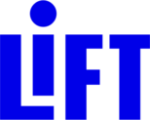I spent the first 18 years of my life in Bangladesh, Ethiopia, and Indonesia. My dad works for the United States Agency for International Development (USAID), so his job carried my family to and through wars, famines, and natural disasters. I generally keep these stories fairly close to my chest and don’t like to discuss them much – not because the stories are too bleak and grisly or because it’s too emotional to talk about the things I saw – it’s because of something else entirely.
I was aware of what was going on around me. I was aware of the pain and the struggle experienced by those around me, but it functioned like ambient noise. I was just a kid growing up in the foreground of destitute poverty. I worried about homework and presentations. I worried about making friends and losing friends. I worried about the girl I liked finding out I liked her. People don’t really like to hear this. People would prefer hearing about shedding a tear as I’ve witnessed the human spirit overcoming the most powerful adversities, but more often than not, the tears I shed came when a best friend moved, or at the end of the movie Con Air, when Nicolas Cage finally gets back to his wife and daughter. Perhaps as a survival mechanism, or simply a result of youth, I formed callouses to the true tragedies cultivated from poverty that lined the path of my childhood.
These callouses have somewhat faded over the years I’ve spent in the United States, attending college, grad school and working. I am drawn to poverty relief, and have worked in several human services centered nonprofits, but often wonder if this interest is purely intellectual. The past nine months I’ve spent with LIFT have been different, however.
LIFT as an organization has cultivated a culture where passion, empathy, and practicality are able to co-exist. LIFT is programmatically and technologically innovative while maintaining its finger on the pulse on its original mission – helping our neighbors out of poverty because we all deserve to worry about the things I worried about as a kid, not where we’ll sleep at night, or whether there is enough food on the table. LIFT is driven by a collective belief in the need to end poverty which keeps the organization buzzing. I’ve seen my co-workers shed tears after witnessing the triumph of the human spirit, but these tears preempt long hours and tireless effort to support such triumphs. LIFT has managed to see hardship every day and not become numb to it, and see tragedy every day and not become blinded by it.
The Shriver Corps is a once-in-a-generation cohort of AmeriCorps*VISTA volunteers committed to helping people across the United States lift themselves out of poverty for good. The program is a collaboration between LIFT, Maria Shriver’s A Woman’s Nation, and AmeriCorps, and was created to honor the legacy of Sargent Shriver, the founder of the landmark VISTA program.
